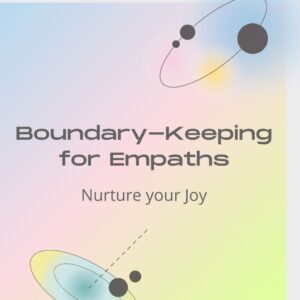[fusion_builder_container hundred_percent=”yes” overflow=”visible”][fusion_builder_row][fusion_builder_column type=”1_1″ layout=”1_1″ background_position=”left top” background_color=”” border_size=”” border_color=”” border_style=”solid” spacing=”yes” background_image=”” background_repeat=”no-repeat” padding_top=”” padding_right=”” padding_bottom=”” padding_left=”” margin_top=”0px” margin_bottom=”0px” class=”” id=”” animation_type=”” animation_speed=”0.3″ animation_direction=”left” hide_on_mobile=”no” center_content=”no” min_height=”none” last=”no” hover_type=”none” link=”” border_position=”all”][fusion_text columns=”” column_min_width=”” column_spacing=”” rule_style=”default” rule_size=”” rule_color=”” hide_on_mobile=”small-visibility,medium-visibility,large-visibility” class=”” id=””]
 In the last post of this series, we covered the second stage of alchemy: dissolution. We also reminded ourselves that it’s important to remain non-attached. At the same time, you will not complete the alchemy process powerfully without uncovering your ‘burning desire’ that drives you towards your goal. Without the attractive force of this desire pulling you, you are in danger of getting lost in the journey of this alchemical transformation. Finding your way out is impossible until a concrete goal emerges.
In the last post of this series, we covered the second stage of alchemy: dissolution. We also reminded ourselves that it’s important to remain non-attached. At the same time, you will not complete the alchemy process powerfully without uncovering your ‘burning desire’ that drives you towards your goal. Without the attractive force of this desire pulling you, you are in danger of getting lost in the journey of this alchemical transformation. Finding your way out is impossible until a concrete goal emerges.
Into a million pieces
As life continues to throw curve balls, we get thrown out of our normal routine, and start to see what the essence of our life is. Normally, this essence gets drowned in the day-to-day dross of our waking life, and sometimes we access it through the subconscious when we sleep. But overall, we are usually unaware of the influence this essence has on our thoughts, behaviors, habits, and outcomes in life.
When we get out of our normal routine, or try to alter our life in some way (like learning a new habit), it’s not uncommon for anger, resentment, frustration, and depression to emerge. We can often have trouble with emotional boundaries as well, not being sure exactly what we want, which has the unfortunate bonus feature of making us more prone to conflict in our relationships.
Have you ever felt so emotionally fragile like you could burst into a million shards of glass on the ground at any moment? That’s separation.
There is perspective to be gained by separating and distinguishing the parts of our life that often go unnoticed. Human beings are meaning making machines, and we go around constantly making up stories about what others think of us, how otherwise meaningless actions have ruined our day, and what we’re going to do about the past when we act in the future. Most times we are not actually present to (and appreciating) what is!
Taking a moment to see each of those stories for what they are, mental objects that take up time and energy, that drive our thoughts, opinions, and actions. They enable us to move those otherwise subconscious drives to the conscious mind where we can evaluate and choose our relationship with them, rather than be driven by them. Freud was a big proponent of this theory of unconscious drives, and ended up taking it further, forming the concept of the id (or instincts/drives) as opposed to the superego (or conscience), which, from a metaphysical perspective, is necessarily aligned with our Higher Self.
In this stage of alchemy called separation, we separate out the parts of the whole that we were not noticing before, and we look at them. We start to see all kinds of relationships we never saw before. We compare and contrast the different parts of ourselves that make being a human so rewarding, giving color to our experience and rhythm to our steps. We have to have the honesty and integrity required within ourselves to acknowledge those parts of us that we don’t necessarily like before we can move towards wholeness.
Seeing the unseeable
After a particularly nasty breakup with his ex, Riley basically repressed her feelings for a year and it took her awhile to feel open to dating again. Understandably, when she put herself out there to date again, she had all kinds of caveats. “I’m never dating that kind of person again,” she decided. So she evaluated every prospective partner that came into her life from the lens of that list of traits she’d rather like to avoid, lest she find herself in the same position as last year, emotionally bruised and battered, closing herself off again to the happiness she was sure she could find if she just had another (not so crazy) partner.
She had one particularly memorable dating experience where, after dinner, she was feeling particularly attracted to her date, and decided to invite him over to her house for an after dinner aperitif. No sooner had they entered then the comments began. “Oh, what a nice space. I really like your sofa. How long have you lived in this house? Where did you get those curtains?” Riley was beside herself, one of the things on her list was no critical comments, because she felt emotionally shunned by her ex, who was always evaluating and criticizing her. Riley felt like she could never live up to his standard, so she ended the relationship.
Now it was happening all over again, except that it was happening with each person she became close with. Once the intimacy started to increase, she would start to get these comments. First they were relatively innocuous, but then later, there was some tension or even outright conflict. Riley didn’t know how to resolve this recurring issue.
One day, while at coffee with a friend, Riley was detailing how her most recent date wasn’t going to cut it again, when her friend stopped her and leaned over to say, “Riley, don’t you see a pattern here. Whenever you want to get intimate with someone, you immediately close yourself off, which defeats the whole purpose!”
Riley started to look at her most recent dates, and she was flabbergasted. Her friend was right, she always reacted with resistance whenever anyone got close enough to ask her a question that really mattered. She withdrew as soon as people were just getting to know her. This was no way to create a relationship.
Once Riley saw this in her behavior, she was able to catch herself going down that trail, and decided to she her experience differently. “No, he’s not trying to criticize me, he’s just curious because he doesn’t know! I haven’t shared that part of myself with him yet.”
After this, Riley was able to have a relatively long-term relationship again. Though still looking for that life partner, she is enjoying emotionally-fulfilling relationships both with her intimate partners and her friends.
Reflective Quote:
“He [William S Burroughs] has no patience for my kind of neurosis, I know… But since then I’ve been facing my nature full in the face and the result is a purge.”
― Jack Kerouac, Jack Kerouac and Allen Ginsberg: The Letters
[/fusion_text][/fusion_builder_column][fusion_builder_column type=”1_1″ layout=”1_1″ background_position=”left top” background_color=”” border_size=”” border_color=”” border_style=”solid” spacing=”yes” background_image=”” background_repeat=”no-repeat” padding_top=”” padding_right=”” padding_bottom=”” padding_left=”” margin_top=”0px” margin_bottom=”0px” class=”” id=”” animation_type=”” animation_speed=”0.3″ animation_direction=”left” hide_on_mobile=”no” center_content=”no” min_height=”none” last=”no” hover_type=”none” link=”” border_position=”all”][/fusion_builder_column][/fusion_builder_row][/fusion_builder_container]


